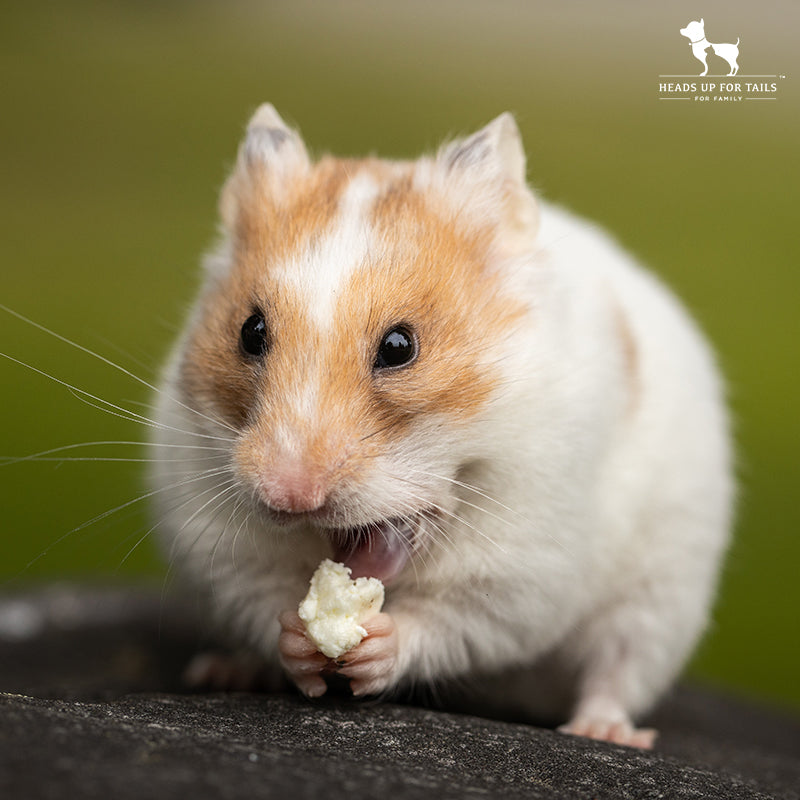
Hamsters are small rodents with a short life span of two to three years. They are easy to look after and pretty much live on their own, making them a perfect fit for new pet parents and households with small children. They are also great for pet lovers who want a companion pet but whose lifestyle does not allow a lot of time or commitment.
Before getting any pet home, it’s best to know all about their needs and be prepared, or it’s a hassle later on. It can put both you and your new pet in a tight spot, which you can prevent from happening by following these basics on how to care for your little companion.

Hamsters are simple beings with very few needs, and it’s better to have their home set up before they arrive. A few essential supplies that you will need to have are as follows:

When you get your new hamster home, it is advisable to give them three to five days to adapt to the new setting, without much handling and disturbance, after which you may begin to handle them with care and caution for a little while daily. To associate handling with a positive experience and get them comfortable with it, you may reward them with food during handling.
It is essential to approach hamsters with ease. Make sure you do not scare or startle them. Eventually, you may also let them out of their cage for some time if you are comfortable doing so. Hamsters enjoy exploring and sniffing around. Only let them out under your supervision, as their small size makes them good escape artists and prone to dangers.
It’s unnecessary to let them out if you provide them with enough mental and physical stimulation in the cage itself. Hamsters rely on us for their daily needs: food, water, and a clean shelter: other than that, they are pretty much independent.
Hamsters are crepuscular, meaning they are most active at dusk and dawn. They mostly rest or sleep during the other times of the day and may become irritated if disturbed. Many hamsters adapt to their parents’ routine and stay active when their human is active.

Get a spacious, easy to clean, and escape-proof cage for your hamster. Plastic cages are not a good option as your hamster can easily chew through them and escape. The cage size varies depending on whether you are getting a regular or dwarf hamster, so make sure you get the right-sized cage.
You also need to clean the cage once a week, so have an optional place to keep your hamster while you clean their cage. Their cage must have a comfortable bedding material made of paper, wood shaving, or fibre-based. We advise against cotton bedding as it can be a choking hazard if eaten; it also causes troubles if it gets tangled around the feet of your hamster.
Make sure to change the bedding material weekly. Do not place their cage in direct sunlight or extreme temperatures. 26 to 28℃ is a comfortable range. You can wash the cage using disinfectants once in a while, but make sure you rinse it off and dry it well before using it.
HUFT TIP: Avoid using pine or cedar wood shavings as nesting material, as their strong odour can affect the respiratory system of your hamster.

Hamsters are omnivorous and enjoy fruits, vegetables, small insects, grains, nuts and seeds. Human foods like chocolate, milk, and spicy items are strongly not recommended. You can also feed them commercial hamster food for an all-around balanced diet. You can also supplement their commercial food with some freshly cut veggies and fruits.
You must not give treats and fruits in large amounts as they are high in sugar. Always provide them with fresh drinking water.
Add exercise wheels and some toys to keep them healthy by providing physical and mental stimulation.

Hamsters are hardy pets, but their small size makes them vulnerable. If you have a pet hamster, keep an eye out for any unusual signs to recognise and treat any discomfort as quickly as possible. A hamster who is not eating, has runny stools, is inactive, experiences hair loss, or shows inactivity must be taken to a vet as soon as possible.